SDOs as de facto do-ocracies How standards are really made
Slide 1

Slide 2

About me • • • • Started in open-source and the web. 3+ yr stint as Facebook’s W3C AC Rep. Lead testing at W3C. Now consultant for browser vendors + editor of the Generic Sensor API and WebIDL. Generally @tobie around the web. tobie@codespeaks.com
Slide 3

Web SDOs • • • • W3C (pretty much all web APIs) Ecma international (JavaScript) Khronos (WebGL) WHATWG (W3C spinoff—we’ll come to it later) Underlying layer(s): • IETF, etc.
Slide 4

Particularities of web standards • Specs mainly target browser vendors (aka implementors) which are handful of huge corporations. • Some are also aimed at “authors” (everyone that creates content on the web, i.e.: content providers and web devs). • End-users aren’t really represented. • Creates important power imbalance.
Slide 5

W3C Organization • Royalty-free patent policy (key value prop.). • Structured in working-groups arranged around topics and IP concerns. • Working groups composed of W3C members. • Consensus-based. • Very-much IETF inspired. • Chairs/Editors.
Slide 6

W3C Process https://www.w3.org/Consortium/Process/
Slide 7

Slide 8
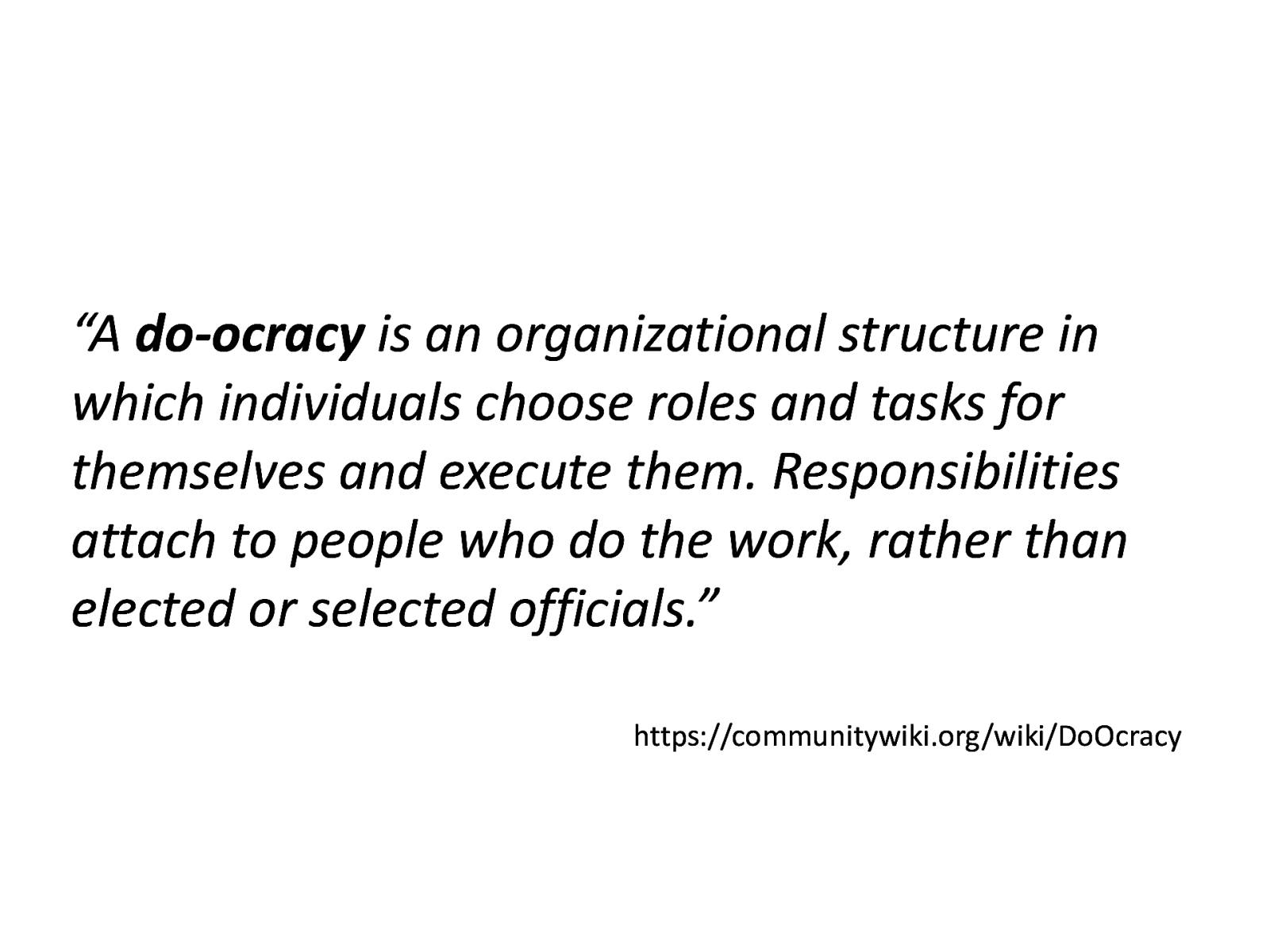
“A do-ocracy is an organizational structure in which individuals choose roles and tasks for themselves and execute them. Responsibilities attach to people who do the work, rather than elected or selected officials.” https://communitywiki.org/wiki/DoOcracy
Slide 9
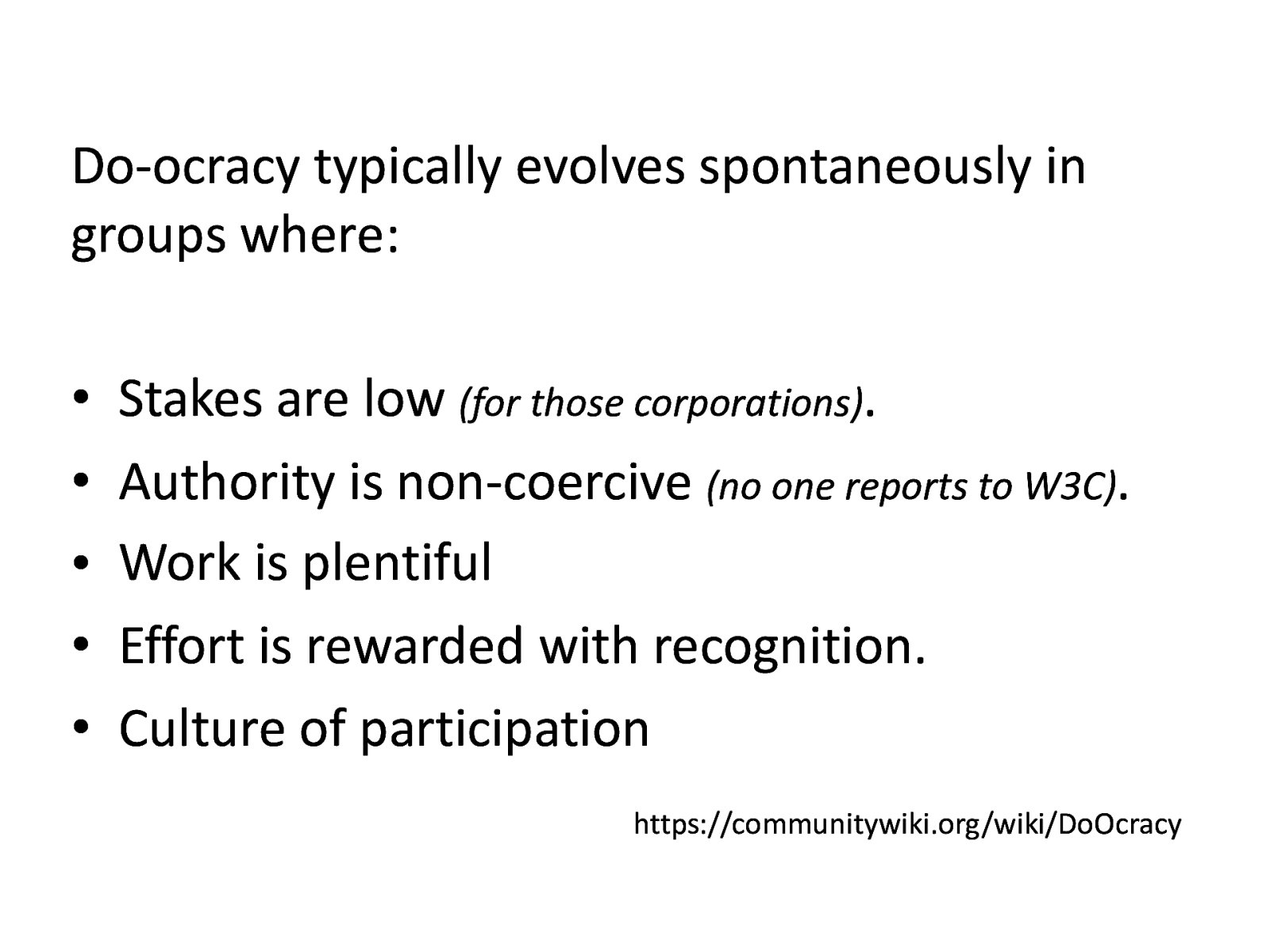
Do-ocracy typically evolves spontaneously in groups where: • • • • • Stakes are low (for those corporations). Authority is non-coercive (no one reports to W3C). Work is plentiful Effort is rewarded with recognition. Culture of participation https://communitywiki.org/wiki/DoOcracy
Slide 10
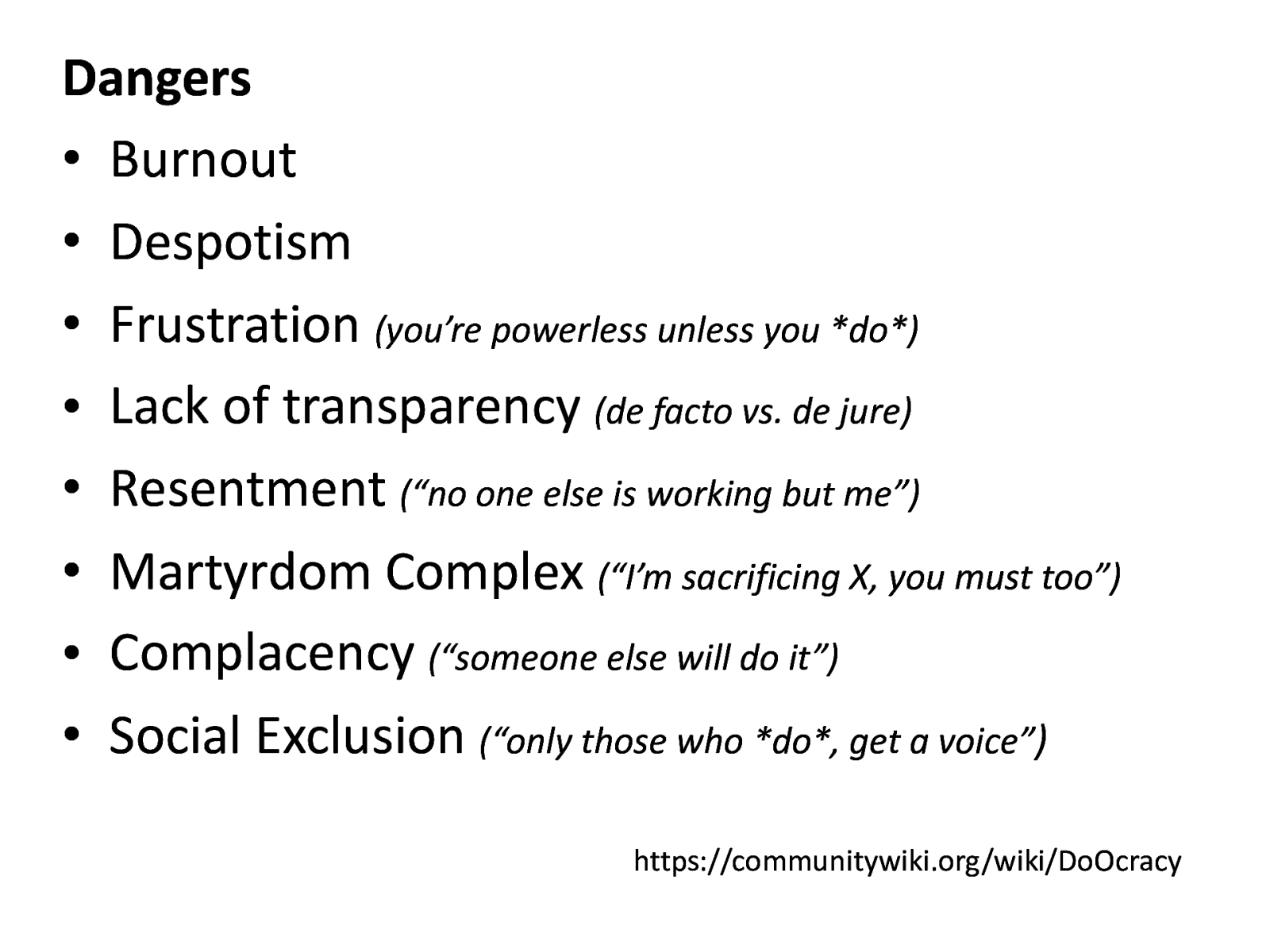
Dangers • Burnout • Despotism • Frustration (you’re powerless unless you do) • Lack of transparency (de facto vs. de jure) • Resentment (“no one else is working but me”) • Martyrdom Complex (“I’m sacrificing X, you must too”) • Complacency (“someone else will do it”) • Social Exclusion (“only those who do, get a voice”) https://communitywiki.org/wiki/DoOcracy
Slide 11

Slide 12
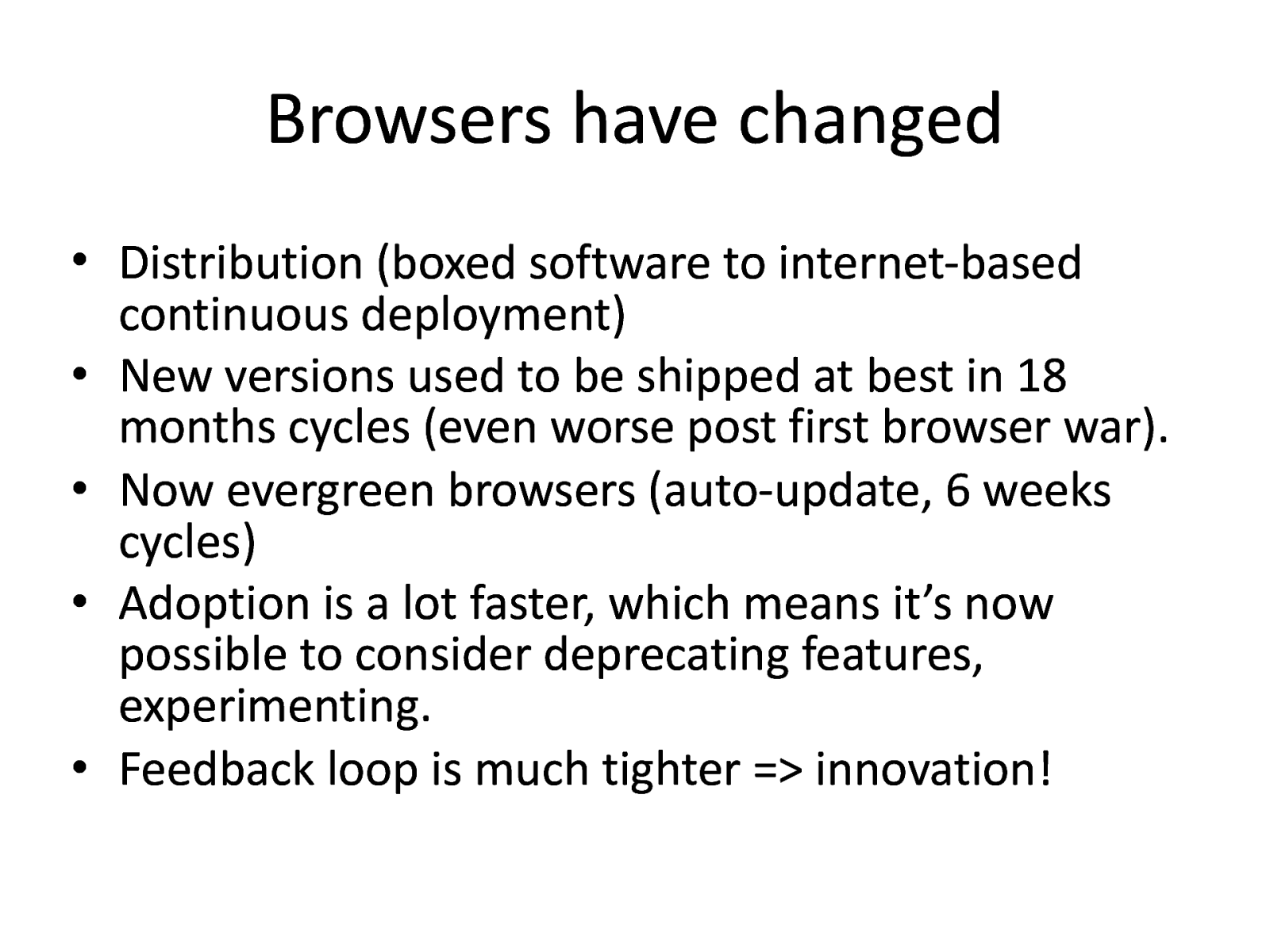
Browsers have changed • Distribution (boxed software to internet-based continuous deployment) • New versions used to be shipped at best in 18 months cycles (even worse post first browser war). • Now evergreen browsers (auto-update, 6 weeks cycles) • Adoption is a lot faster, which means it’s now possible to consider deprecating features, experimenting. • Feedback loop is much tighter => innovation!
Slide 13
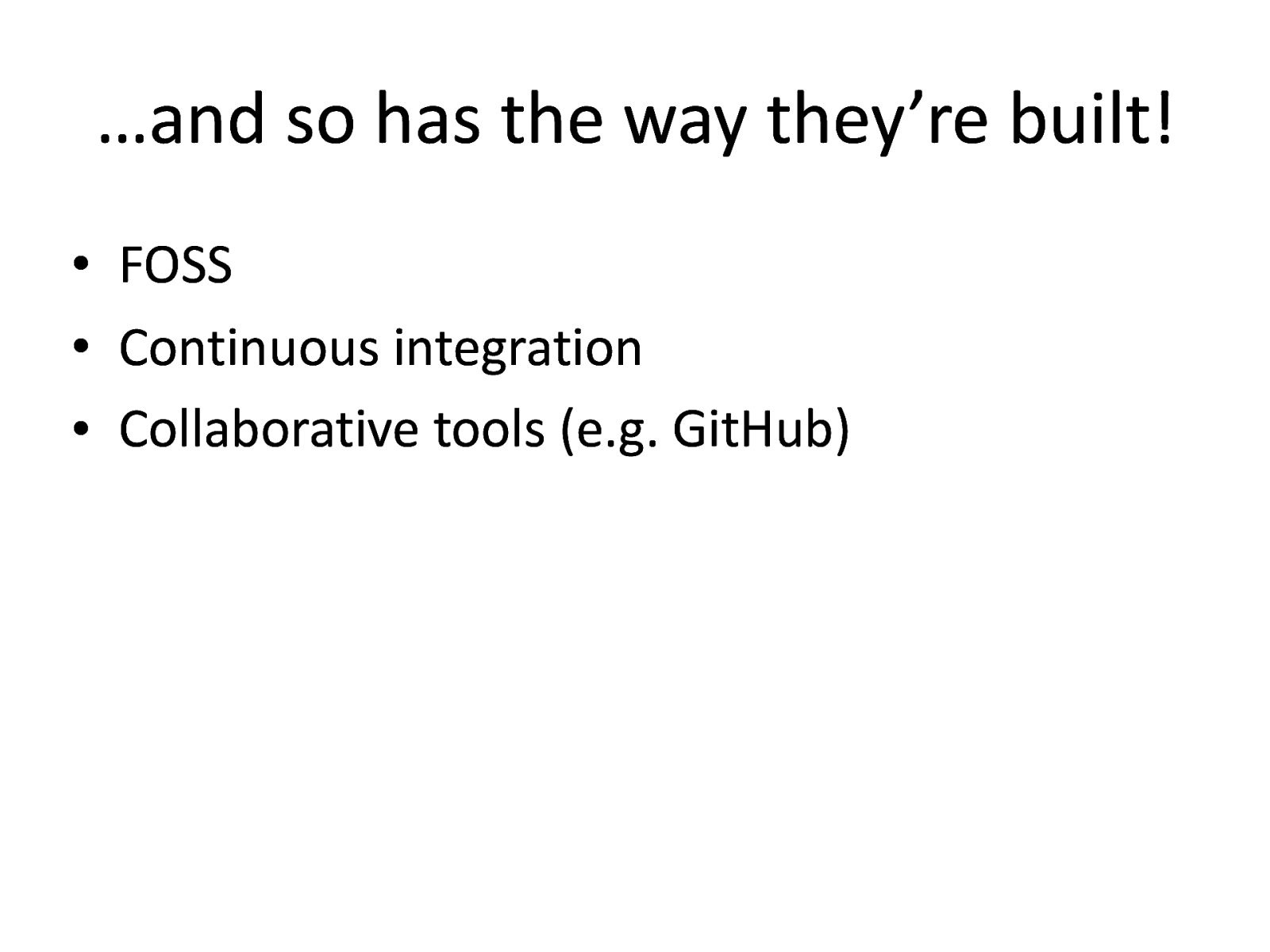
…and so has the way they’re built! • FOSS • Continuous integration • Collaborative tools (e.g. GitHub)
Slide 14

Which in turns influences how standards are made. https://www.w3.org/Consortium/Process/
Slide 15

Consequences Standards stay in WD mode for much longer. Living standard (WHAT WG). Convergence with FOSS (tooling, IP). Criteria for triggering IP commitments (REC status) no longer met. • SDOs who want to stay in the game need to find new solutions. • • • •
Slide 16
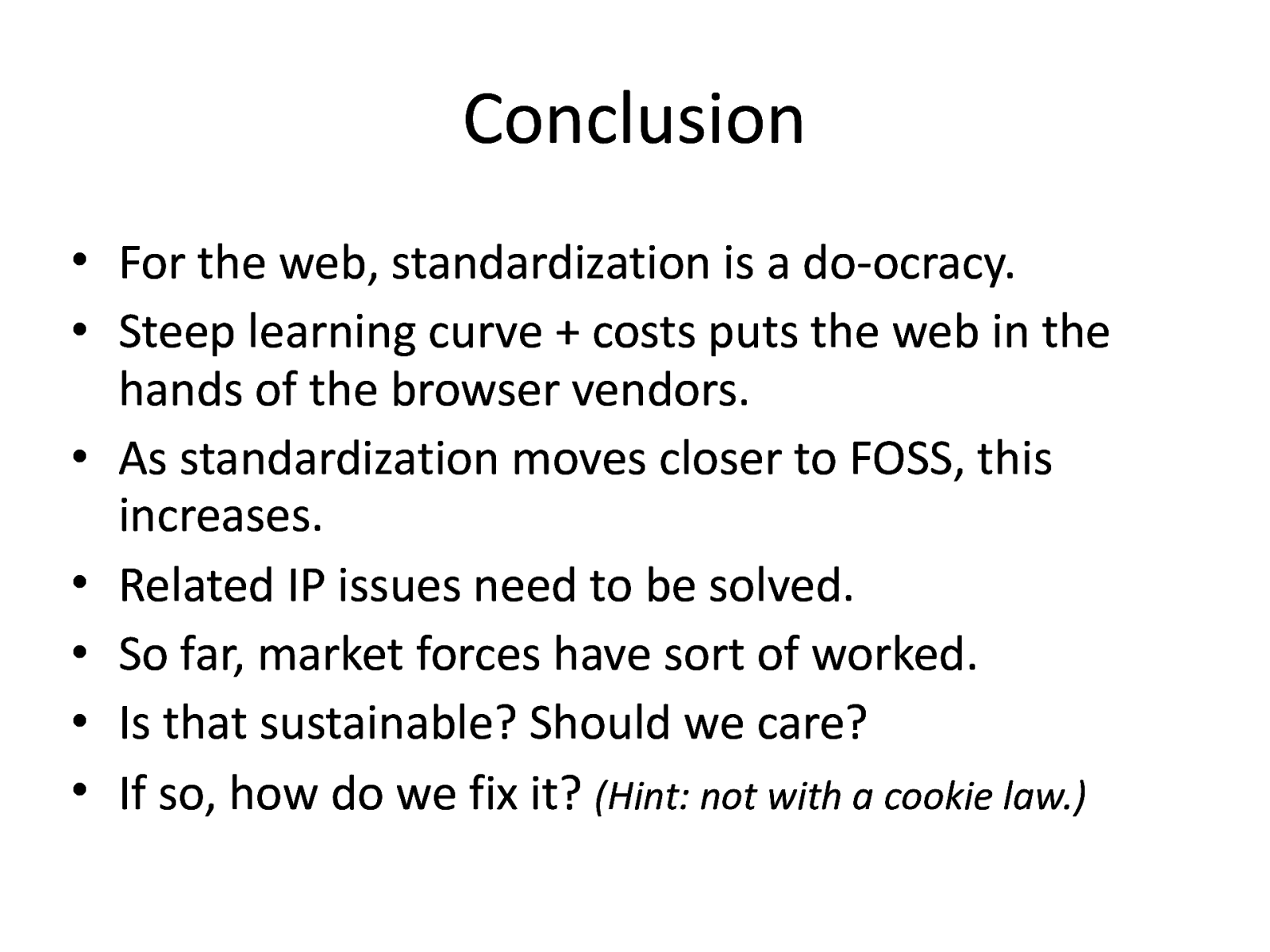
Conclusion • For the web, standardization is a do-ocracy. • Steep learning curve + costs puts the web in the hands of the browser vendors. • As standardization moves closer to FOSS, this increases. • Related IP issues need to be solved. • So far, market forces have sort of worked. • Is that sustainable? Should we care? • If so, how do we fix it? (Hint: not with a cookie law.)